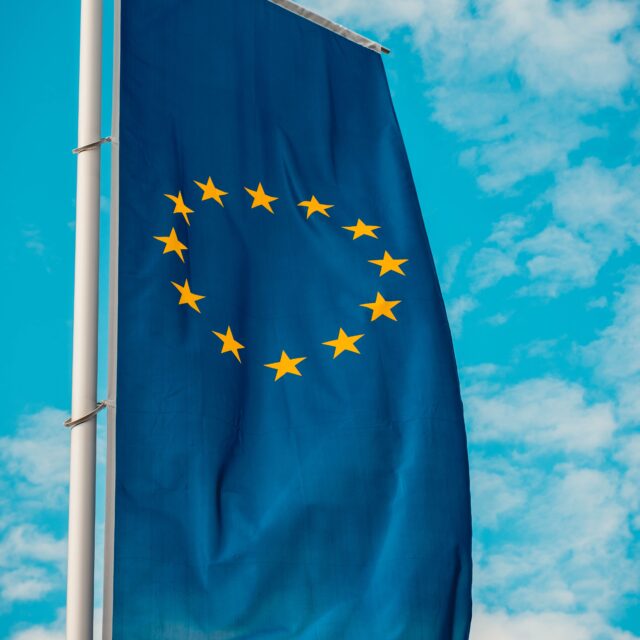Photo by Katie Moum on Unsplash
EU countries are all facing immigration pressures, but despite Brexit, immigrants from other countries are still keen to come to the UK, writes Philip Bushill-Matthews.
Nigel Farage as Leader of the UK Independence Party had his own solution: the UK needed an Australian-style points system (although ironically the Australian system helped immigrants come in rather than keep them out). Three years ago, Home Secretary Priti Patel launched the process to put a points system scheme into UK national law. Job done…..
She confidently declared that “The new system, which takes effect from 1 January 2021, will end free movement, re-assert control of our borders and restore public trust. It will also end the reliance on cheap low-skilled labour coming to the UK.” She concluded: “Overall levels of migration will be reduced, with tighter security and a better experience for those coming to the UK.” After exactly two years it is timely to examine how these promises have performed in practice.
‘Overall levels of migration will be reduced’: in the year ending June 2022, 1.1 million people immigrated legally into the UK. This was an increase of 435,000 on the previous year. The number was boosted by the arrival of people from three protected categories: 89,000 from Ukraine, 21,000 from Afghanistan and 76,000 from Hong Kong. These categories accounted for less than half the total increase, with the balance primarily students and their dependants from non-EU countries. During the same 12-month period some 509,000 non-EU nationals returned to their home countries, meaning that net immigration to the UK was still just over 500,000. This was the exact opposite of Patel’s commitment to an overall reduction.
‘re-assert control of our borders …with tighter security’: during the same period some 35,000 illegal immigrants landed from small boats having crossed the channel. This would rise to 45,000 in the calendar year 2022, also a massive increase on previous years: a further 65,000 are forecast to arrive this year. Not much control or security here.
‘…and a better experience for those coming to the UK’: the 4,000 illegals held at the Manston asylum centre might use different words when describing their experience. So might the 67,000 in the queue to be processed and the 125,000 still waiting for a decision with an average waiting-time of over 15 months. The thoughts of 200 unaccompanied children are unknown as they have disappeared, perhaps kidnapped. Meanwhile firm commitments to appoint a Migrants Commissioner and to increase the powers of the independent Inspector of Borders have both just been scrapped.
‘It will also end the reliance on cheap low-skilled labour coming to the UK.’ Staff shortages specifically have caused nearly half of all hospitality outlets to cut hours and/or capacity, costing an estimated tax loss of £5bn, Unfilled vacancies in the UK care-home sector rose by over 50% last year to 165,000. Non-EU nurse numbers joining the NHS are now mainly poached from ‘red list’ countries in Africa and Asia with their own healthcare needs: this still leaves the UK with around 40,000 posts unfilled. There are also problems finding transport and warehousing staff.
The National Farmers’ Union said 40% of respondents to a recent survey replied they had suffered crop losses because of lack of labour: the six-month seasonal workers scheme was only half what the industry needed. The Lee Valley, the UK’s salad bowl with 80 growers and 450 glasshouses, has highlighted its own problems: their season runs for 11 months, so they need to recruit and train twice the number of people to do the same job. Many growers have already given up, and in 2023 fully 100 acres of glasshouses will be replaced by housing. As a direct result of Government policy, the UK will now be importing more cucumbers, peppers and salads from the EU instead of producing them ourselves. So yes, the Government has succeeded in its aim of reducing ‘cheap’ labour coming into the UK – but the economy is suffering mightily as a result. Even Lord Wolfson, a prominent Brexiteer, has called for the limits on much needed low-skilled immigration to be rapidly revisited.
Patel’s promise to ‘restore public trust’ simply shows how out of touch the current Government is, both in its lack of awareness of the real issues the country faces as well as the irrelevance of its plans to address them.
The Home Secretary hailed her immigration plan as ‘a historic moment for the whole country.’ It was indeed historic: a historic mistake in concept and historically incompetent in delivery from an uncaring and out-of-touch Home Secretary.
This is an ideological Government obsessively determined to distance the country further from the EU and even basic human rights despite the self-harm this creates. We may have chosen to lose our EU membership, but that is no reason to choose to lose our senses.

The Author, Philip Bushill-Matthews, is Former Leader of the British Conservatives in the European Parliament




